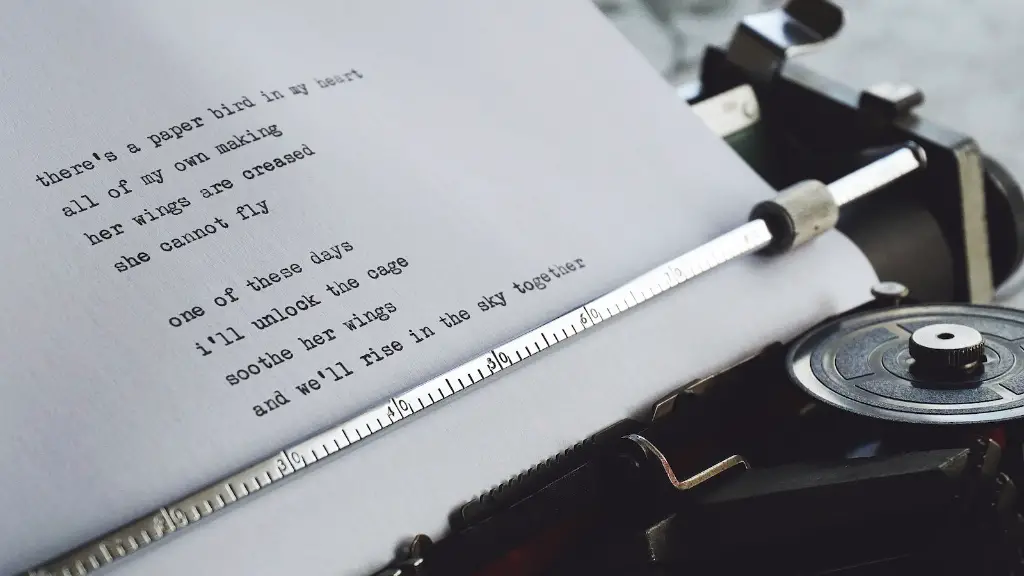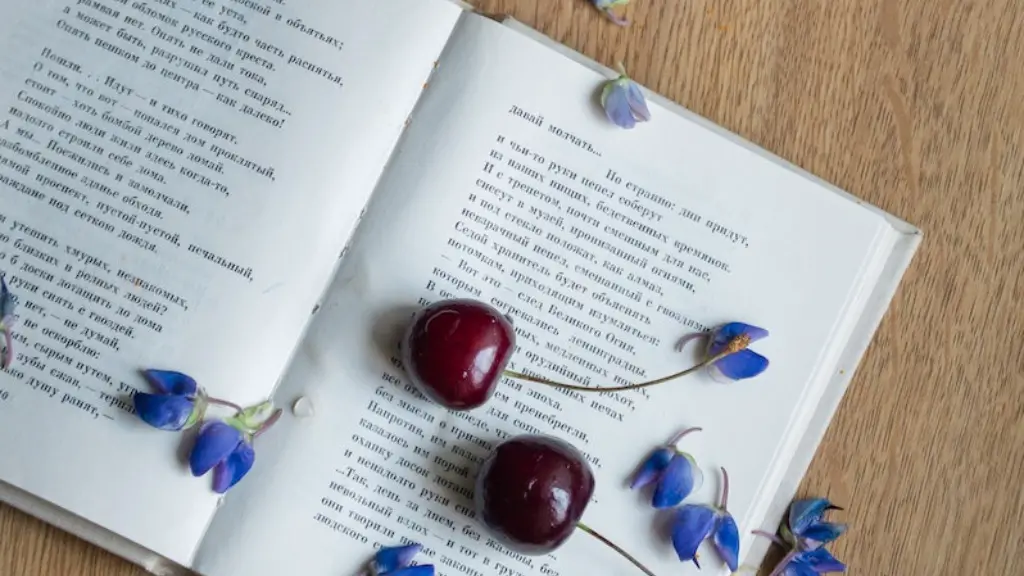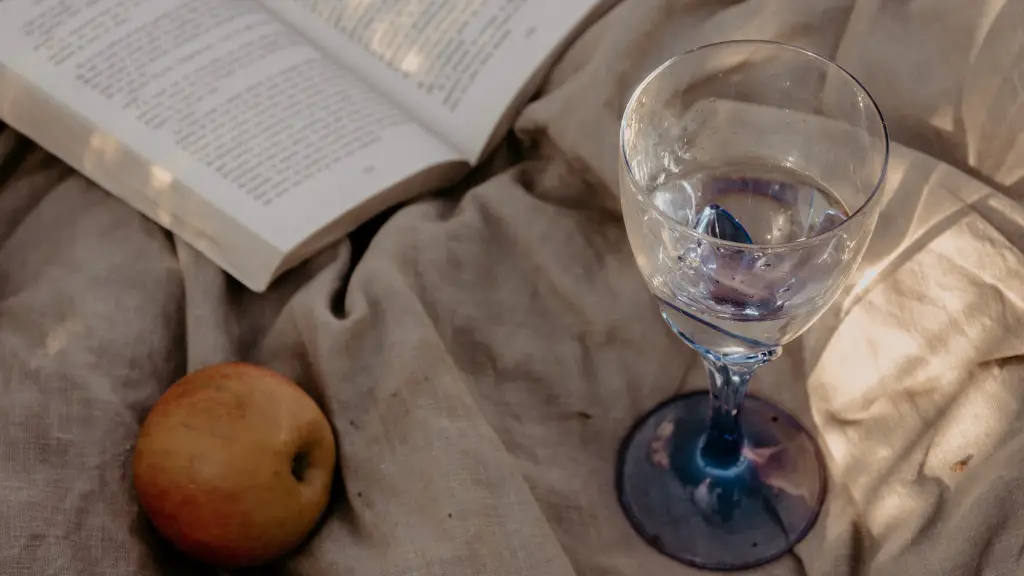The role of poetry in the writing world
Poetry has been a key part of the writing world dating back to ancient times. Throughout the centuries, classics have been written and studied that have helped shape our understanding of the world around us. Despite its long standing presence in literature and art, can we truly say that poetry is the same as prose? Generally if something is described as poetry it implies a different, often more lyrical and expressive style than prose.
In the simplest sense, poetry is a collection of words and basic language written to create a specific emotion, using thoughtful and interesting imagery, while prose is a written description of a particular concept. Poetry often employs the use of poetic devices to convey a certain emotion or idea such as rhyme, rhythm and metaphor. Prose is often divided up into paragraphs and sentences that focus on a specific point of view about a particular subject.
Both poetry and prose have their own merits, but there are some key differences that must be considered. Poetry often centers on emotions, feelings, and sensory imagery. Prose, on the other hand, usually focuses on plot, character development, and specific facts. Therefore, when considering if poetry can be considered prose or not, one must think about the purpose and content of both elements.
If we take a look at a poem and its structure, we can see that the words and the layout form a pattern that helps convey a certain emotion or thought. The structure is an integral part of poetry and conveys a deeper meaning than if the exact same words were delivered in a standard prose format.
In addition to structure, poets often use language conventions such as alliteration, metaphor and rhythm to highlight important points and bring out desired emotions. These techniques can help to drive home the central message of the poem and give it more power. This is what sets apart poetic writing from prose writing and gives it a unique place in the literary world.
Interestingly, there is some debate about the use of narrative elements in poetry. Some argue that narrative is not essential for good poetry and that poems should focus on creating a certain feeling or image from a reader’s point of view. However, others would argue that narratives are a key part of many great poems and can help bring out a powerful point in an interesting way.
Finally, poets vary in their approach to creating art. Even though some poets may prefer traditional techniques, there is a lot of room for personal expression. This means that poets can go beyond the boundaries of poetry and incorporate elements from other genres to create something new and unique. The use of technology and other modern sources can greatly enhance the impact of poetry and make it appeal to newer audiences.
The Intersection of Poetry and Prose
It’s a common thought that poetry and prose lie in two very distinct realms, but is this actually the case? While it’s true that there are differences between the two, there are also various aspects that can be seen as connections between them. Poems and prose can be combined to create hybrid works that have the best of both worlds – the emotion of poetry and the narrative structure of prose.
Many contemporary authors now write works that they refer to as ‘prose poetry’. These hybrid works adopt the narrative elements of prose, but also embrace the lyrical aspects of poetry. They use both traditional poetic devices such as metaphors and alliterations, and narrative story-telling to create powerful, multi-dimensional works.
When combined in the right way, prose and poetry can work hand in hand to create a more vivid and emotional experience. This type of writing encourages readers to look at things from different angles and use all their senses to experience the story. It can be seen as much a sensory experience as it is a mental one.
Can Poetry be Prose?
The answer to this may depend on how we define poetry and prose. In the traditional definition, poetry and prose are two very distinct forms of writing. However, many modern authors have blurred the lines and created hybrid works that combines elements of both.
Aspiring writers who want to incorporate poetry into their work should consider how prose and poetry interact. They should think about what narrative elements they want in their work and how they can use poetic devices to enhance them.
By using both forms of writing, it’s possible to create powerful works that engage both the mind and the senses of the reader. Doing this successfully takes time and practice, so it’s important for writers to experiment with different approaches to get the right balance.
The Influence of Poetry on Prose
Throughout its long history, poetry has had a huge influence on the world of prose writing. From the earliest classics to modern works, writers have used poetic elements to create an emotional atmosphere in their works.
By using poetic devices such as metaphors and similes, writers can create vivid images in the mind of the reader. This can in turn help to make their prose works more memorable and engaging.
At the same time, the structure of poems can offer useful insights into how to create a successful narrative. The use of particular forms, such as end-rhyming and terza rima, can be useful for creating a coherent structure for works of non-fiction and fiction.
How Poetry can Enhance Prose Writing
For many aspiring authors, the use of poetic elements can be an important part of creating vivid and engaging prose. By using poetic techniques, writers can craft powerful scenes and descriptions that help to create a strong atmosphere in their works.
In particular, techniques such as imagery and metaphors can be used to enhance the power of prose writing. By creating vivid images in the mind of readers, authors can make their works much more interesting and memorable.
Aside from using the words themselves, authors should also think about the sound of their words. By using techniques such as alliteration and assonance, authors can craft powerful works that appeal to the senses and create an emotional atmosphere.
The Benefits of Poetic Writing for Prose Authors
By developing their understanding of poetry, many authors have noticed a dramatic improvement in their prose writing abilities. Poetry requires a certain level of creativity and makes authors think more deeply about their writing.
At the same time, the thoughtful approach of poems can also be helpful for those looking to craft better prose. For instance, mastering the use of poetic devices such as metaphor can make authors think more deeply about how to create powerful imagery.
Finally, poetic writing can also help writers to become more passionate about their chosen topics. By exploring deeper meanings and themes, authors can create powerful works that speak directly to the hearts of their readers.
Understanding the Value of Free Verse
When considering the value of poetry, many writers tend to forget about the value of free verse. Free verse is a form of poetry which does not adhere to traditional poetic structure or meter. This can offer a great freedom to writers who want to explore their creativity without the constraints of structure.
The beauty of free verse is that it allows poets to explore their own individual points of view. By not adhering to traditional poetic conventions, poets can explore the themes of their works in more unique ways.
Many modern poets are now writing in the free verse form whose work is becoming increasingly popular. These poets embrace the freedom that the form provides, and use their creativity to craft engaging works.
What are the Benefits of Incorporating Poetry into Prose?
For aspiring authors, using poetry in their prose works can be a great way to stand out and craft unique works. By incorporating both poetic and narrative elements into works of fiction and non-fiction, authors can create powerful works that leave an impression on readers.
In addition to creating a more engaging experience for readers, incorporating poetry can also help to deepen the themes of a work. Through the use of poetic elements such as imagery and metaphors, authors can explore their chosen topics in greater depth.
Finally, the use of poetry can also be a great way for authors to explore different stylistic conventions. By experimenting with various styles and techniques, it’s possible for authors to craft works that stand out from the crowd and create powerful experiences for readers.


